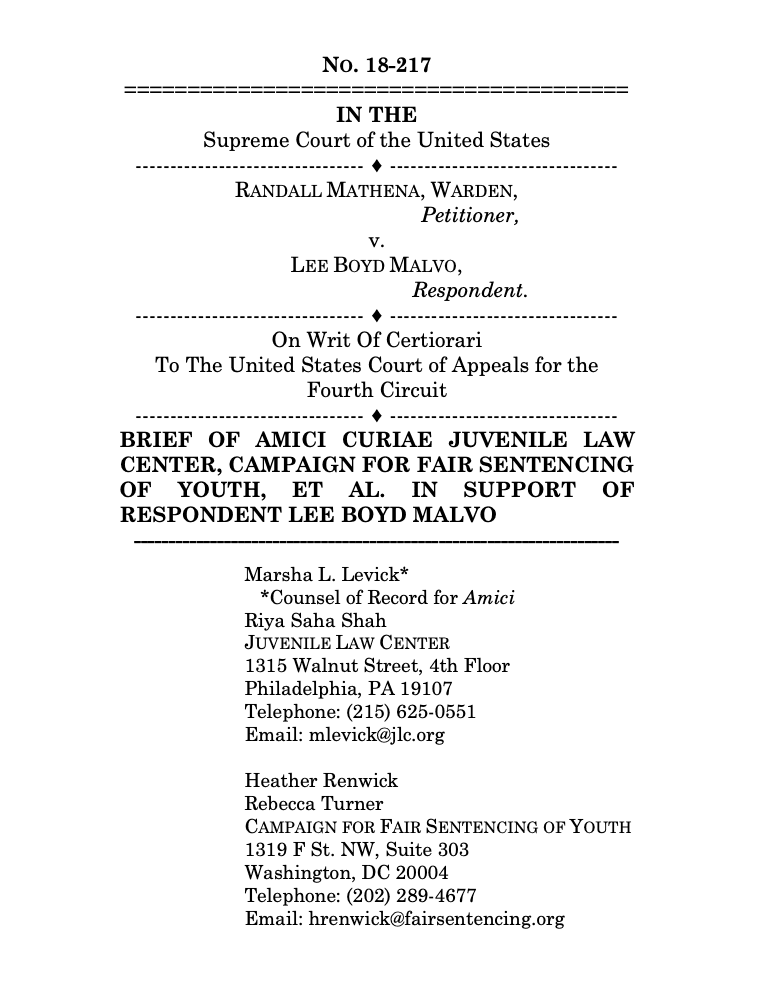
Summary of Argument
In Miller v. Alabama, this Court held that the mandatory imposition of life without parole sentences on juvenile offenders convicted of murder is cruel and unusual punishment. Miller v. Alabama, 567 U.S. 460, 489, (2012). Miller held that a category of punishment (life without parole sentences) cannot be imposed on a category of defendants (juvenile offenders) absent a consideration of chronological age and its hallmark features—among them, immaturity, impetuosity, and failure to appreciate risks and consequences. It prevents taking into account the family and home environment that surrounds him—and from which he cannot usually extricate himself—no matter how brutal or dysfunctional. It neglects the circumstances of the homicide offense, including the extent of his participation in the conduct and the way familial and peer pressures may have affected him. Indeed, it ignores that he might have been charged and convicted of a lesser offense if not for incompetencies associated with youth.
Miller, 567 U.S. at 477. Any life without parole sentence imposed without such consideration flouts this Court’s ruling. Courts and legislatures across the country have relied on this Court’s decision in Miller and found life without parole sentences for youth— whether imposed under a mandatory or discretionary sentencing scheme—invalid when imposed without consideration of the factors set forth in Miller.